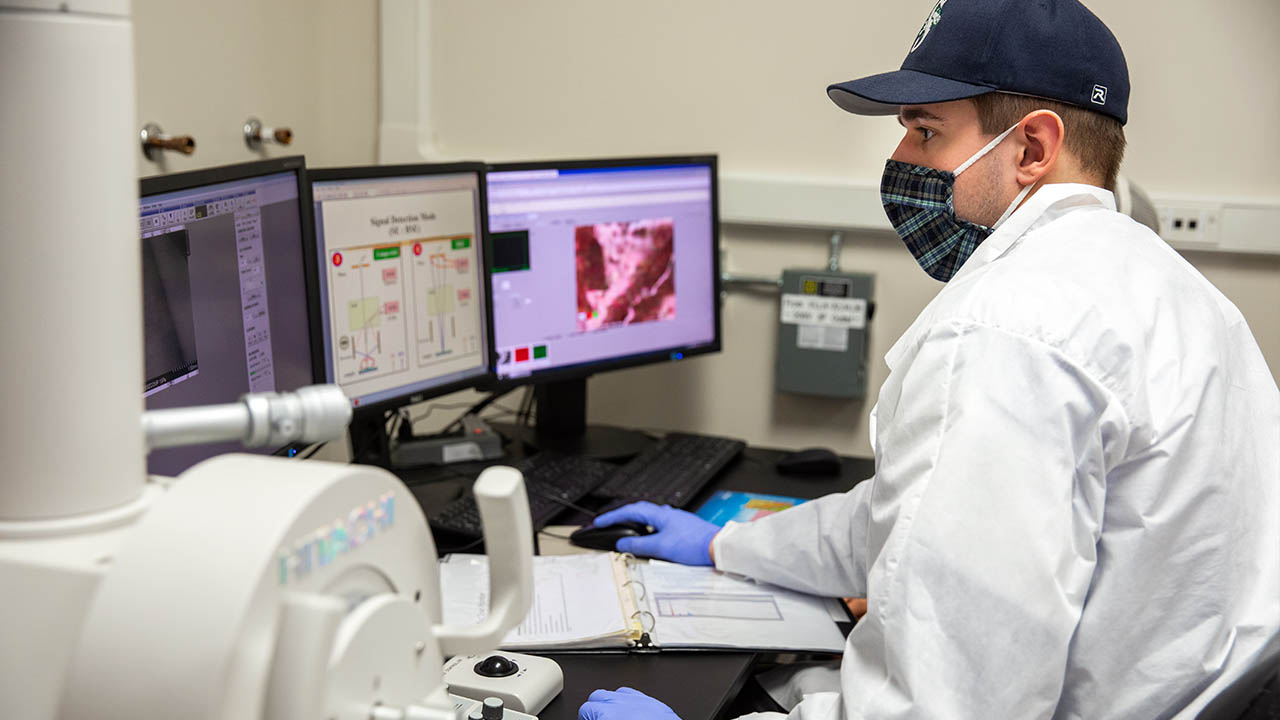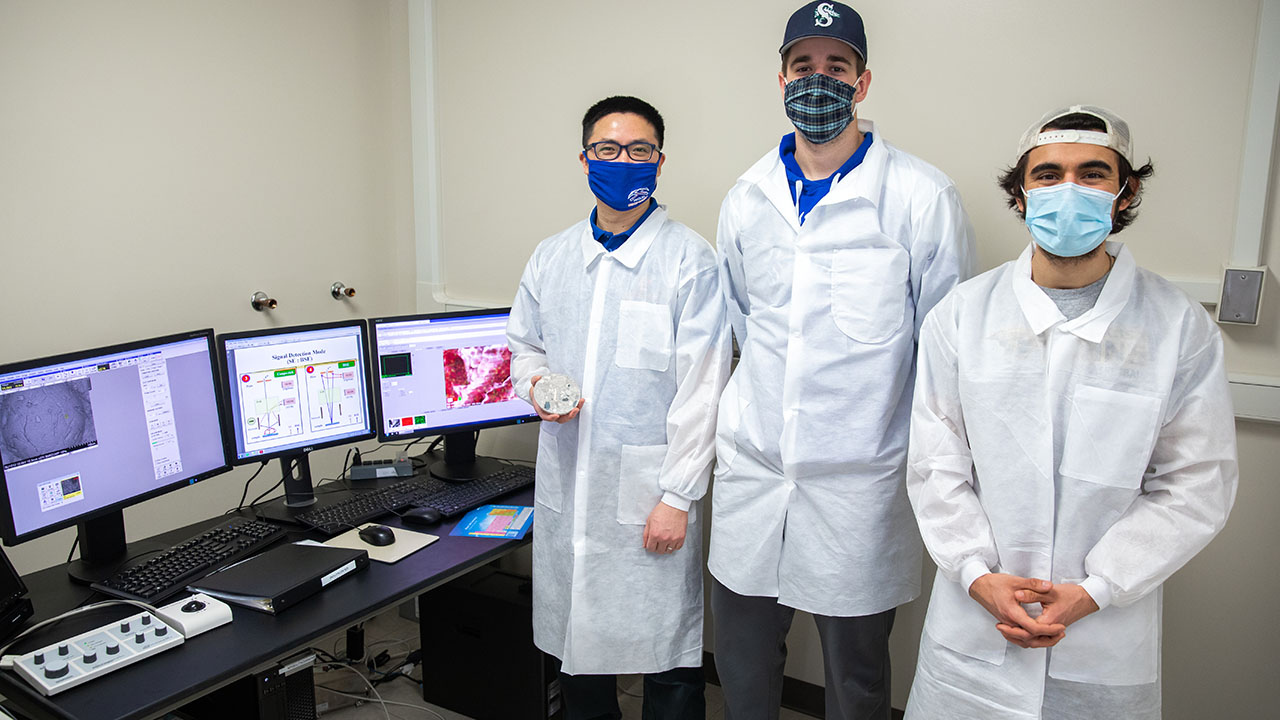

With near-record cold stretches and snow accumulation this winter, de-icing of Wisconsin roads and highways is a common sight, but a research project at the University of Wisconsin-Platteville is studying the long-term impacts of these treatments on concrete durability. After receiving the Undergraduate Research, Scholarly and Creative Activity Scholarship his freshman year at UW-Platteville, Dylan Notsch, now a sophomore, is working on this research with Dr. Danny Xiao, assistant professor of civil engineering.
“We are studying the effects of anti-icing on concrete,” said Notsch, an environmental engineering major from Sartell, Minnesota. “We have completed a series of freeze-thaw tests on large concrete specimens last year and saw significant difference from different anti-icing solutions. Currently, we are looking at these concrete specimens from the microscopic level to understand the mechanism of damage.”
Notsch selected concrete as his area of emphasis after being awarded the scholarship.
“UW-Platteville, compared to other schools, has a lot more opportunities to experience research. It’s really nice,” he said. “Dr. Danny [Xiao] was looking for someone who wanted to focus on concrete in the undergraduate research field. I got in contact with him; we have been doing research ever since.”
Throughout the nearly two years of working on the research project, “Evaluating the Impact of Anti-icing Solutions on Concrete Durability,” funded by the Wisconsin Department of Transportation, Notsch said he’s appreciative of the opportunity to receive hands-on experience in the different areas of engineering.
“I enjoy learning about different aspects of the civil engineering field, especially since I’m in environmental engineering,” he said. “I get to learn aspects more civil related. I get to experience both ends of the engineering spectrum with what I’m working on right now.”
Notsch is also learning how to write technical documents, prepare poster presentations and draft professional reports. He believes these new skills and his research experience will be beneficial when he starts applying for co-ops, internships and professional positions.
“The skills I have learned will transition well,” he said. “It helps set you apart to future employers compared to other schools. It’s an opportunity that many students don’t get at other schools. You can participate in [research] which is huge. The equipment in the Material Fabrication and Nano Characterization Lab is amazing.”